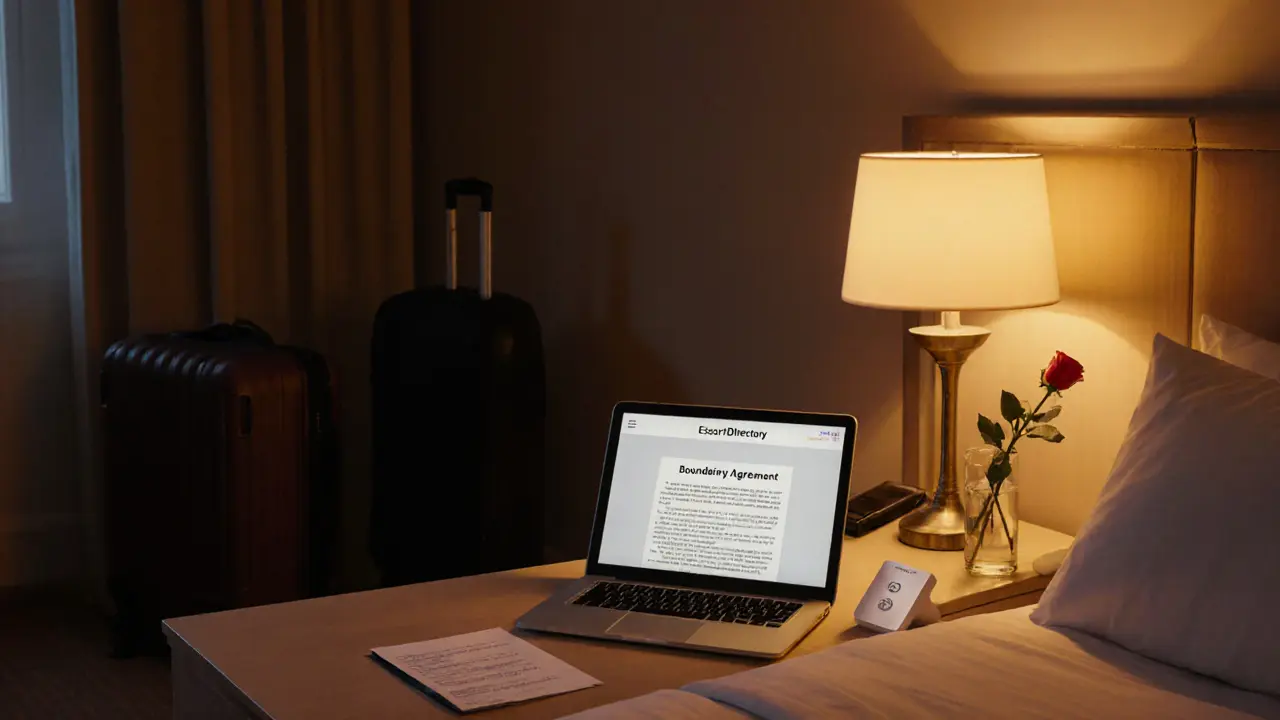The Escort Industry in London: How It’s Becoming a Path to Independence
When you hear the word "escort" in London, what comes to mind? Stereotypes? Scandal? Secretive meetings in luxury hotels? The truth is far more complex-and far more human. Thousands of people in London work as independent escorts, not because they have no other options, but because this work gives them control over their time, income, and boundaries. This isn’t about exploitation. It’s about autonomy.
It’s Not What You Think
Most people assume escort work is a last resort. That’s outdated. A 2024 survey by the UK Sex Workers’ Advocacy Network found that 68% of independent escorts in London chose this work voluntarily. Many already had degrees, careers, or other jobs. They switched because escorting offered flexibility no 9-to-5 could match. One woman, a former teacher in her mid-30s, told me she left the classroom after realizing she was making less than £20 an hour after taxes and commuting. As an escort, she now earns £80-120 an hour, works three days a week, and spends the rest with her kids.The stigma around escorting still runs deep. But the reality is simple: people pay for companionship, conversation, and presence-not just sex. Many clients are lonely professionals, elderly individuals without family nearby, or people recovering from loss. The relationship is often emotional as much as physical. That’s why so many escorts set strict boundaries. No sex? Fine. No kissing? Done. No after-hours calls? Absolutely. The client agrees to the rules before anything happens.
How It Actually Works
There’s no central agency controlling the industry in London. That’s intentional. Most escorts operate independently. They use encrypted apps like Signal or Telegram to communicate. They manage their own bookings through private websites or vetted platforms like EscortDirectory or LondonCompanions. These sites don’t take a cut of earnings-they just provide a space to list services and verify identity.Before meeting a client, every professional escort does the same three things:
- Checks the client’s ID and references (if available)
- Confirms the meeting location is public or safe (never a private home on first meeting)
- Sets clear boundaries in writing before arrival
Many carry panic buttons, share their location with a friend, or use apps like SafeTogether that alert contacts if they don’t check in. Some even hire security personnel for high-risk clients. This isn’t risky behavior-it’s risk management.
Why London Is Different
London’s escort scene thrives because of its legal gray zone. Prostitution itself isn’t illegal in the UK. Neither is selling companionship. What’s illegal is soliciting in public, running a brothel, or pimping. That means individual escorts can legally work alone from their own homes, hotels, or rented spaces. They just can’t share a building with other workers or advertise in public spaces.This legal structure gives them power. They control their pricing. They choose their clients. They decide when to take a break. A 2023 study by the London School of Economics found that independent escorts in the city earned an average of £4,500 per month-more than 60% of London’s full-time workers. And they pay taxes. Many hire accountants. Some even reinvest in education or start small businesses.

The Real Liberation
Liberation isn’t just about money. It’s about dignity. For many, escorting is the first time they’ve felt in control of their bodies and their lives. A trans woman in her 40s, who spent years working in hospitality under constant harassment, said: "I used to smile when I didn’t want to. Now, I say no-and no one questions it. That’s freedom."Women, non-binary people, and men who escort often report higher self-esteem after starting this work. They’re not victims. They’re entrepreneurs. They manage their brands, build client relationships, handle finances, and navigate legal risks. They’re not asking for pity. They’re asking to be seen as professionals.
And the demand? It’s growing. More people are open to paying for emotional connection. More clients are respectful. More escorts are speaking out publicly-on podcasts, in documentaries, even on LinkedIn. The old narrative is crumbling.
What People Get Wrong
The biggest myth? That escorts are trapped. The truth? Most leave when they want to. Some transition into therapy, writing, or coaching. Others start their own agencies for other workers. One former escort in Brixton now runs a nonprofit that helps people exit the industry safely-without judgment.Another myth: that it’s dangerous. Yes, there are risks. But so is driving a taxi, working late shifts in retail, or being a nurse. The difference? Escorts have tools to reduce those risks-and they use them. The real danger comes from laws that push the work underground and from public shame that silences voices.

Changing the Conversation
There’s a quiet movement in London. Escorts are organizing. They’re pushing for decriminalization-not legalization. Legalization means government control. Decriminalization means removing criminal penalties so workers can report abuse, access healthcare, and get loans without fear.Groups like SWARM (Sex Workers’ Advocacy and Rights Movement) have been lobbying MPs since 2022. They’ve won small victories: police now treat reports from escorts seriously. Some hospitals offer confidential care without reporting. A few banks now accept escort income as legitimate for mortgages.
It’s not perfect. But it’s progress.
What You Can Do
If you’ve ever judged someone for being an escort, pause. Ask yourself: what would you do if you had no safety net? If your rent was due and your job paid £12 an hour? Would you still judge them-or would you understand?Support comes in simple forms:
- Don’t spread rumors
- Don’t assume someone’s story
- Don’t call it "prostitution" unless you’re talking about forced labor
- Support organizations like SWARM or The Red Thread
The escort industry in London isn’t a problem to be solved. It’s a reflection of a society that still doesn’t value care, connection, or autonomy-unless it’s packaged in a corporate job. Maybe it’s time we stopped looking down and started looking closer.
Is it legal to be an escort in London?
Yes, selling companionship or sexual services as an independent worker is legal in London. What’s illegal is soliciting in public, running a brothel (more than one worker in one location), or pimping. Independent escorts can legally work from their own homes, hotels, or rented spaces as long as they’re not sharing with others or advertising in public.
How much do escorts in London earn?
Earnings vary widely based on experience, location, and services offered. Most independent escorts charge between £60 and £150 per hour. Full-time workers typically earn between £3,500 and £6,000 per month after expenses. Many report higher earnings than the UK median salary, especially when working part-time.
Are escorts in London safe?
Safety is a top priority. Most escorts use strict screening processes: checking IDs, using verified platforms, meeting in public places first, sharing location with trusted contacts, and carrying panic buttons. Many hire security or use apps like SafeTogether. While risks exist, they’re actively managed-unlike in industries with no worker protections.
Do escorts pay taxes in the UK?
Yes, many do. Independent escorts are self-employed and required to register with HMRC. Some hire accountants to manage their income and expenses. Tax filings for escort work are treated the same as any other freelance income. While not all report earnings, a growing number do-especially those seeking mortgages, loans, or long-term stability.
Why do people become escorts in London?
People choose escort work for many reasons: flexibility to care for children or elderly relatives, higher pay than traditional jobs, desire for autonomy, or a background in hospitality or therapy. Many already have degrees or prior careers. It’s often a strategic choice, not a last resort. A 2024 survey found 68% of London escorts entered the industry voluntarily.





